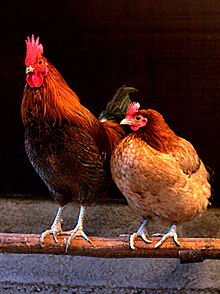bridd
Old English
[edit]


Alternative forms
[edit]Etymology
[edit]Unknown; the word appears to be exclusive to Old English and lacks cognates in any other Germanic languages. Liberman notes that dozens of origins have been both suggested and rejected, leaving its original meaning and etymology a mystery.[1] It might possibly be from a non-Indo-European substrate, with a likely onomatopoeic origin.
Formally, the word may lead back to a Proto-West Germanic *bridi ~ *briddj-, possibly to Proto-Germanic *bridjaz, a derivative of *bredą (“board, plank, shelf", possibly also "perch, roost”), and may have therefore been used of young birds or fowl that were fledged and able to perch but not yet able to fly (i.e. "perch-ling", or "roost-ling"; compare modern English rooster, bougher, brancher, etc.), as opposed to fugol ~ fuglas the term for birds that were able to fly. If so, then possibly related to Old English bred (“board, plank, tablet”). Otherwise, the derivation remains unclear.
Pronunciation
[edit]Noun
[edit]bridd m
Declension
[edit]Strong a-stem:
| singular | plural | |
|---|---|---|
| nominative | bridd | briddas |
| accusative | bridd | briddas |
| genitive | briddes | bridda |
| dative | bridde | briddum |
Descendants
[edit]References
[edit]- ^ An Analytic Dictionary of the English Etymology: An Introduction. (n.d.). United Kingdom: U of Minnesota Press, p. 9-13
Welsh
[edit]Noun
[edit]bridd m
- Soft mutation of pridd.
Mutation
[edit]- Old English terms with unknown etymologies
- Old English terms derived from substrate languages
- Old English terms with IPA pronunciation
- Old English lemmas
- Old English nouns
- Old English masculine nouns
- Old English masculine a-stem nouns
- ang:Baby animals
- ang:Birds
- Welsh non-lemma forms
- Welsh mutated nouns
- Welsh soft-mutation forms
